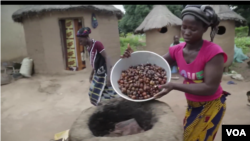When a country is deemed to have stepped outside of international norms or standards, the community of nations may impose sanctions against the sitting government, non-state actors or individuals deemed to be responsible for offending acts. The idea is to persuade the offending parties to change their policy by restricting trade, investment or other commercial activity, and in the case of individuals, travel to the United States.
In the early years of this century, such was the case with Côte d’Ivoire. Seeking to facilitate peace negotiations to put an end to the country’s bloody civil war, the United Nations imposed targeted sanctions on certain individuals who significantly contributed to the conflict. Many in the international community followed that lead, including the United States, which imposed sanctions on specific individuals beginning in 2006.
Then, in 2010, Ivorians elected opposition leader Alassane Ouattara to the Presidency. The President was recognized by the international community as the country’s new leader. Nonetheless, the incumbent, Laurent Gbagbo, refused to give up the Presidency, and the fighting, which had largely ceased in 2007, was renewed. More sanctions were imposed by the United Nations, as well as by individual countries, including the United States.
On September 14th of this year, recognizing that the situation in Côte d’Ivoire has vastly improved, President Barack Obama lifted U.S. sanctions on the Ivory Coast. “President [Obama] determined that Cote d’Ivoire’s advances in restoring peace and democracy and developing its political, administrative, and economic institutions represent significant improvements since President Bush declared the national emergency in 2006,” said State Department Deputy Spokesperson Mark Toner in a written statement.
“Côte d’Ivoire has taken important steps to strengthen its governing and economic institutions and reconcile the differences that led to war," said White House National Security Council spokesman Ned Price in a separate statement.
"Challenges remain as the country continues to tackle difficult land reform issues and works to ensure that the benefits of economic growth are felt throughout the Ivoirian population."














